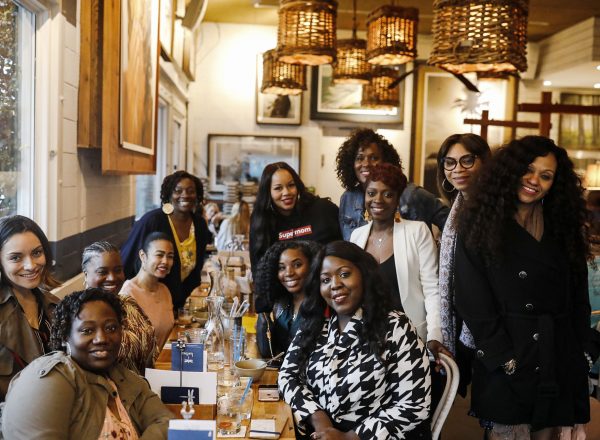Losing a loved one hurts. But to watch your child go through that pain and misery, trying to comprehend what you yourself cannot? Multiply that pain by infinity. As a parent, you don’t only experience your pain but your child’s too. How do you help them say goodbye? It’s not easy, and it’s different for every person – and it will be different for every one of your children – but there are ways to help them cope.
How to Help Your Children Say Goodbye to Loved Ones
Personalize a good-bye “ceremony” with your kids.
I don’t mean the one you have at church or in the funeral home with the casket and the cemetery. This ritual has its place and is necessary to many but may not be the best way for your kids to cope. Personalization is key. Have them write a note detailing anything from what they’ll miss to what they loved to their latest drawing. But have them choose. If they don’t want to write a note, but want to leave a gift – GREAT. It’s THEIR message to their parent, grandparent, aunt, dog, cat, or whatever they have lost. As for what you do with it? That depends on you. Maybe you can place it with the deceased, or maybe you can put it in a “safe space.” Children can find comfort knowing that their loved one “heard” their final goodbye.
Ceremony Part 2: Balloons.
Children (and adults) writing notes on balloons and releasing them into the universe is powerful. They watch their words go into the sky to meet with the spirit of what was lost. It’s a physical action that requires no imagination – the balloon goes into the great unknown where our loved ones have also gone. It’s a way to physically communicate what they need to say, and there is a certain innocence in knowing their message has arrived. These releases may occur on anniversaries, on death days, Father’s/Mother’s Days, and on birthdays – with grand celebrations at reunions, with a family and their pastor, or simply with a mom and her two children. No matter how big or small, the peace felt afterwards is real. Your message has been sent and received.
Additional Tips
Grief, however, is complicated, and the ceremony usually ends up being just one step in the healing process. Also, consider these tips:
If your child needs to talk, talk.
I know this may seem obvious, but there will be times when the deceased is the very last conversation you want to have. Do it anyway. Focus on the good stuff. “What are your favorite memories?” “What did you like best?” “Tell me a story.” Do your absolute best to keep it positive while they are grieving.
BUT, watch your child for obsession.
My friend’s daughter went through stages where her father’s death seemed to be her only focus. Her mother and teachers ended up giving her a set time where she could be sad and feel all the grief she needed to feel, but it was only allowed during that time. Therefore, if she knew she had a time to feel sad, she wouldn’t feel as guilty being happy without him. And that’s what it came down to – she felt guilty that she was happy when her father had died.
Don’t panic over a lack of emotion.
Sometimes children don’t grieve at the most appropriate times. The other daughter of my friend? She cried a lot in the beginning when her father passed, but then when subsequent people and pets died, she had a dismissive attitude and focused more on comforting others who were grieving. Don’t ever make your child feel that their reaction is the wrong reaction.
Use “I” statements.
Talk about what you’re noticing about your child using yourself as the observer. Children (and adults) can get defensive if you are discussing emotions. Translate your concern into an “I” statement – “I feel like you are upset about something.” “I’ve noticed you are pretty quiet today.” It takes any perceived accusation away from the situation, inviting conversation.
Seek a professional’s help.
Look into private counseling, school programs, outreach programs. There is nothing wrong with saying that you don’t know how to help, or that you need help. Go to your local children’s hospital, speak to friends, ask your physician or your child’s pediatrician. All are great resources. Find a program or a person who fits you or your child’s personality. And if it’s covered by insurance – even better!
These ideas are just a few. You can buy children books that discuss loss and death – read it, discuss it, and share your thoughts. You can contact your local hospice to see if they have any literature to share. You can go on a mini-retreat with your family to escape the memories for a little bit.
Everyone grieves differently so there is no magic formula that will help your child. However, if you stay tuned to your child, watching for reactions, asking probing questions, talking about how you are feeling or your observations, you are definitely helping your child deal with that loss – and in some cases, you’ll be helping yourself as well.




13 Comments
Tara Pittman
July 16, 2019 at 5:14 pmThe lack of emotion in kids can be a challenging thing. They may not be able to handle things and shut down. Then it can surface years later. This happened to me when I was a kid and my brother died.
Kelly
July 17, 2019 at 2:09 amWe lost my grandma last year and I had a hard time balancing my own grief with trying to feel out my kids for it. One didn’t seem bothered by grief at all. The other one was overly sensitive to my grief so I tried to mask it to not set her off. I don’t know if that was the right thing to do or not, but I think we all learn as we go. There’s no right way to grieve.
Mama to 6 Blessings
July 17, 2019 at 2:25 amThese are great suggestions. Thankfully other than my 2 miscarriages I have not really had to deal with this with my kids yet. I bet it’s tough, your tips are super helpful.
Kathy
July 17, 2019 at 2:33 amThis is such a great post. I know it can be so hard for kids to lose loved ones. I think you have a really good informational post here to help.
Wren LaPorte
July 17, 2019 at 3:03 amThis is great! I think that not enough people know how to handle situations like that.
Amberly
July 17, 2019 at 3:18 amThank you for these tips! This is such a hard topic and one that I know a lot of families struggle with. This is a very valuable resource.
Ruth I
July 17, 2019 at 7:39 amThank you for these great points. It is so difficult to handle grief without any support. I was always the tough one when we lost our grandma, never cried or asked for help. But I wish I had, it’s so hard to talk to anyone about it.
Jennifer
July 17, 2019 at 4:02 pmWe did the balloon release and it was very healing for my daughter
Tess
July 17, 2019 at 6:12 pmThat is a hard subject for kids. These are great tips to help them through it.
Rachel
July 17, 2019 at 6:42 pmMy son did get grief counseling after my dad died. They were very close and he was one of their caretakers. It helped him a lot.
Krystel | Frugal Living
July 17, 2019 at 7:22 pmThis is a very nice post and useful for parents. It is not easy to say goodbye to anyone.
Heather
July 22, 2019 at 12:47 pmThis is a good post. Such a hard subject but these tips can help.
When Your Child’s Friend Loses a Parent - It's Really Kita
August 12, 2019 at 6:01 am[…] is not one clear cut answer in handling death. Grief changes from one person to the next. I could ask two more families how they would want their […]